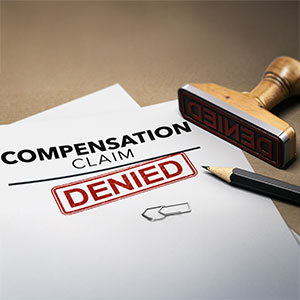Procedure When Defendant To Florida Personal Injury Lawsuit Dies
Personal InjuryIn the case of Sandra Mattick v. Ernie Lisch, Case Number 2D17-3645 (Fla. 2d DCA November 2, 2018), Florida’s Second DCA reversed a dismissal for failure to substitute a deceased party and outlined the proper procedure for what should be done when the defendant to a personal injury lawsuit has died before the conclusion of the lawsuit.
What Happened In This Case?
Ms. Mattick filed a lawsuit against Ernie Conrads for negligently causing a car accident. After filing the lawsuit and while attempting to obtain service of process (a jurisdictional requirement) on Mr. Conrads, the plaintiff learned that he had passed away.
At that point, the plaintiff obtained an order from the trial judge appointing Ernie Lisch as attorney ad litem of the estate for purposes of obtaining services of process. Thereafter, Mr. Lisch filed a motion to dismiss for failure to name Mr. Conrads’ estate as the proper party to the lawsuit. The plaintiff filed a suggestion of death and a motion to substitute the attorney ad litem for the estate.
Over two years later and after filing an answer to the lawsuit, Mr. Lisch filed a motion to dismiss for failure to substitute the estate as the defendant within 90 days after a suggestion of death, as would be required under Fla. R. Civ. P. 1.260. The trial judge dismissed the lawsuit but the Second DCA reversed.
Holding From The Second DCA
The Second DCA held on appeal that the motion for substitution was filed within 90 days and, therefore, there was no violation of Fla. R. Civ. P. 1.260 and the lawsuit should not have been dismissed. However, the case should have been “abated” until someone opened an estate to become the proper legal representative (Florida law requires that a “personal representative” is the only person who can make an appearance in court on behalf of an estate). Therefore, when Lisch was substituted for Conrads as the party, an estate should have been set up (the trial judge was not clear on who was supposed to do this).
Further, the Second DCA went on to say that a trial court has the authority to dismiss a lawsuit as a sanction for “dilatory conduct” in setting up an estate. However, in this case, no one was saying that the plaintiff purposefully or deliberately failed to open the estate. Further, if Lisch was going to insist that proper procedure be observed, then he should not have filed an answer to the lawsuit without proper substitution of the parties.
Let’s Talk About What Went Wrong And What You Should Do In Your Case
The problem in this case was that the trial judge was not clear as to who had the legal responsibility to open the estate—the plaintiff or the defendant. If that had been made clear in the court’s order, then it likely would have happened and this case would not have been appealed.
If you encounter a situation where the person you intend to sue has died before you file your lawsuit or you find out that the defendant has died when trying to serve your lawsuit, then you should simply go ahead and file your own probate naming a friendly attorney as the personal representative (be sure to check that the family of the deceased has not filed a probate of their own and had a personal representative appointed).
You should also file a suggestion of death in your lawsuit and a motion, under Fla. R. Civ. P. 1.260, to substitute the estate as the proper party. Thereafter, you should submit an order to the judge in your lawsuit that substitutes the estate that you set up as the proper party to the personal injury lawsuit. If someone with priority on becoming personal representative comes forward, then you can file an amended motion to substitute and an uncontested order naming that person (in the capacity of personal representative) on behalf of the estate.
On a final note, there would be no need to have the trial judge appoint an attorney ad litem to receive service of process as that should be unnecessary. Instead, once you open your probate and have a personal representative appointed, then you would serve that person (note-you may need to get the trial judge to extend the 120 day deadline to obtain service of process until a reasonable time after a personal representative has been appointed).
Seek Help With Your Florida Personal Injury Case
Personal injury cases in Florida are often complicated. If you would like help with your case, contact a Lakeland, Florida personal injury attorney for a free consultation with an attorney.


